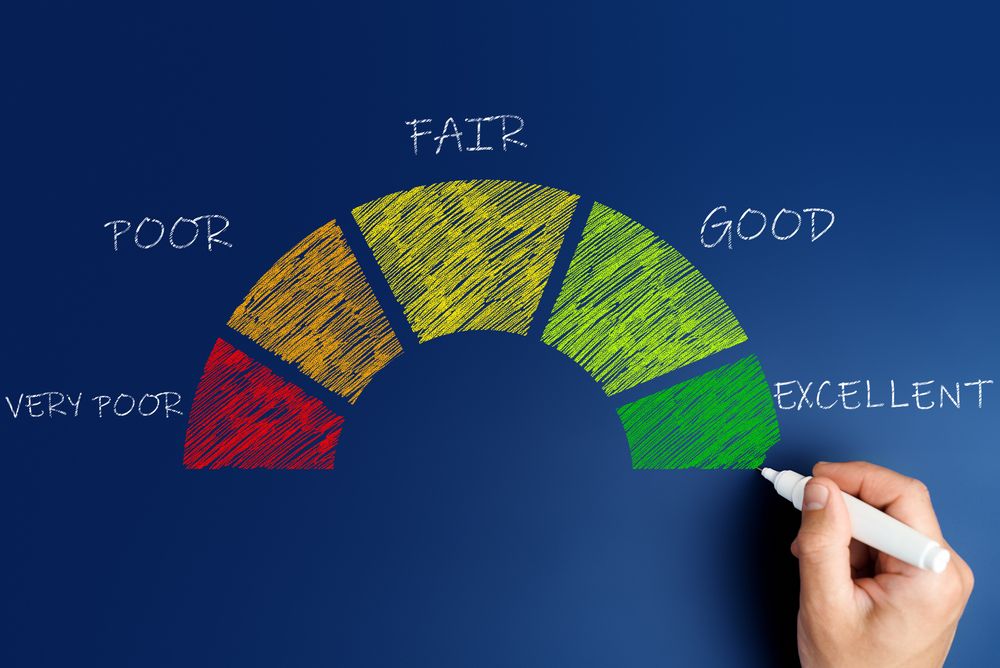What Is the Cyber Score?

Cyber scores may become more common in the coming years. Find out what they measure and what benefits (and potential risks) they present.
Although many people — including those in the IT world — haven’t heard of cyber scores, they have been around for some time, helping organizations of all sizes better understand their existing security posture and identify concrete areas for improvement. Despite their relative longevity, cyber scores have never been especially popular or prominent within the cybersecurity field.
Some tech leaders believe that’s going to change in the coming years. They think that cyber scores are going to play an increasingly significant role in the future of cybersecurity by creating an objective, uniform measure that helps organizations of all kinds better understand how secure they really are. Still, some people worry that having a cyber score might open the door to bad actors who can suddenly create a wish list of easy targets with weak security measures. As we look toward the future, the question is: What might the cyber score look like and how will it be used safely?
Understanding the Cyber Score
The cyber score is, in theory, a universal, objective measure of an organization’s or an individual’s cybersecurity. The best analogy for it is to think of it like a credit score — but one that tells outsiders about your security instead of your finances. The idea is that the cyber score will even the cybersecurity playing field by creating a universal language that helps everyone understand what level of cybersecurity they have.
When it comes to actually calculating your cyber score, the process involves evaluating the risk presented by your various IT assets. That means analyzing your cloud data, assessing vulnerabilities, discovering and assessing all the IT and other assets in your business (including analyzing the security of devices used for remote work), and more. The process is very similar to that of a network security assessment. The main difference is that, with a cyber score the process ends with a numerical value instead of general insights.
The Benefits of the Cyber Score
The cyber score presents a number of significant benefits for those who understand its language. It can help with:
- Organizations increasing their security: Far too often, business leaders feel that they have fully secured their networks and infrastructure — only to discover that they didn’t do nearly enough once it’s already too late. A cyber score is a great, objective way to show an organization’s leadership how cyber secure they actually are and to show the exact areas that could use improvement. When you have a set number staring you in the face saying your organization isn’t sufficiently cyber secure, it’s much harder to claim you’ve taken every precaution possible.
- Vendor management: Knowing the cyber score of your downstream business partners can prove extremely valuable when it comes to ensuring your own cybersecurity. After all, bad actors are often able to gain access to an organization’s network via a less-secure third party partner. By knowing their vendors’ cyber scores, businesses can ensure that they aren’t taking on any unexpected risks.
Even better, when businesses know that a low cyber score could impact their likelihood of finding clients and partners, there will be a greater motivation to increase cybersecurity even among organizations that might otherwise be more willing to take on unnecessary risks. That means that a broadly-used cyber score could increase security even among organizations that are less concerned with their own cybersecurity. - Cyber insurance: Cyber insurance is already a major use case for the cyber score. Cyber scores give insurance companies the insights they need into an organization’s security practices to set the right premiums, coverage, and insurability for them. Unfortunately, once you share your cyber score with an insurance company, you have no control over what happens to that score — or over who may see it.
The Implications of the Cyber Score
It’s very possible that as you’ve been reading through this article you’ve started to get a little concerned about what the cyber score might actually look like and whether it might actually invite more risk than it counters. That’s a natural concern. A broadly used cyber score — particularly one that is publicly available — has some pretty serious potential implications that need to be resolved before it can ever become mainstream.
While it’s great to have a universal language for cybersecurity, having your cyber score publicly available sounds pretty scary. After all, if the score is available to insurance companies, partners, and clients, it’s also available to bad actors looking for the easiest targets to attack. It’s all too possible that instead of offering added security, cyber scores could become wishlists for hackers.
If cyber scores become more popular in the coming years, as some IT leaders predict, it’ll be important to find a way to maximize their benefits without creating these new dangers.
Stay Cyber Secure Today and Tomorrow with TTI
We don’t know what the future holds in terms of the cyber score. It may continue to be something only a few companies rely on, or it may become a major, universal language within the field. No matter what happens with the cyber score, the best way to prepare for any eventuality is to have a strong cybersecurity posture from the start so that if you do ever get a cyber score, it’s a high one right from the start. The experts at Turn-key Technologies, Inc. (TTI) can help make that happen.
With 30 years of experience keeping organizations of all sizes and industries cyber secure, we have the know-how to help you make sure your infrastructure is secure now and into the future. Try out our free cybersecurity assessment tool to see what needs improving and then contact us to get started today!
